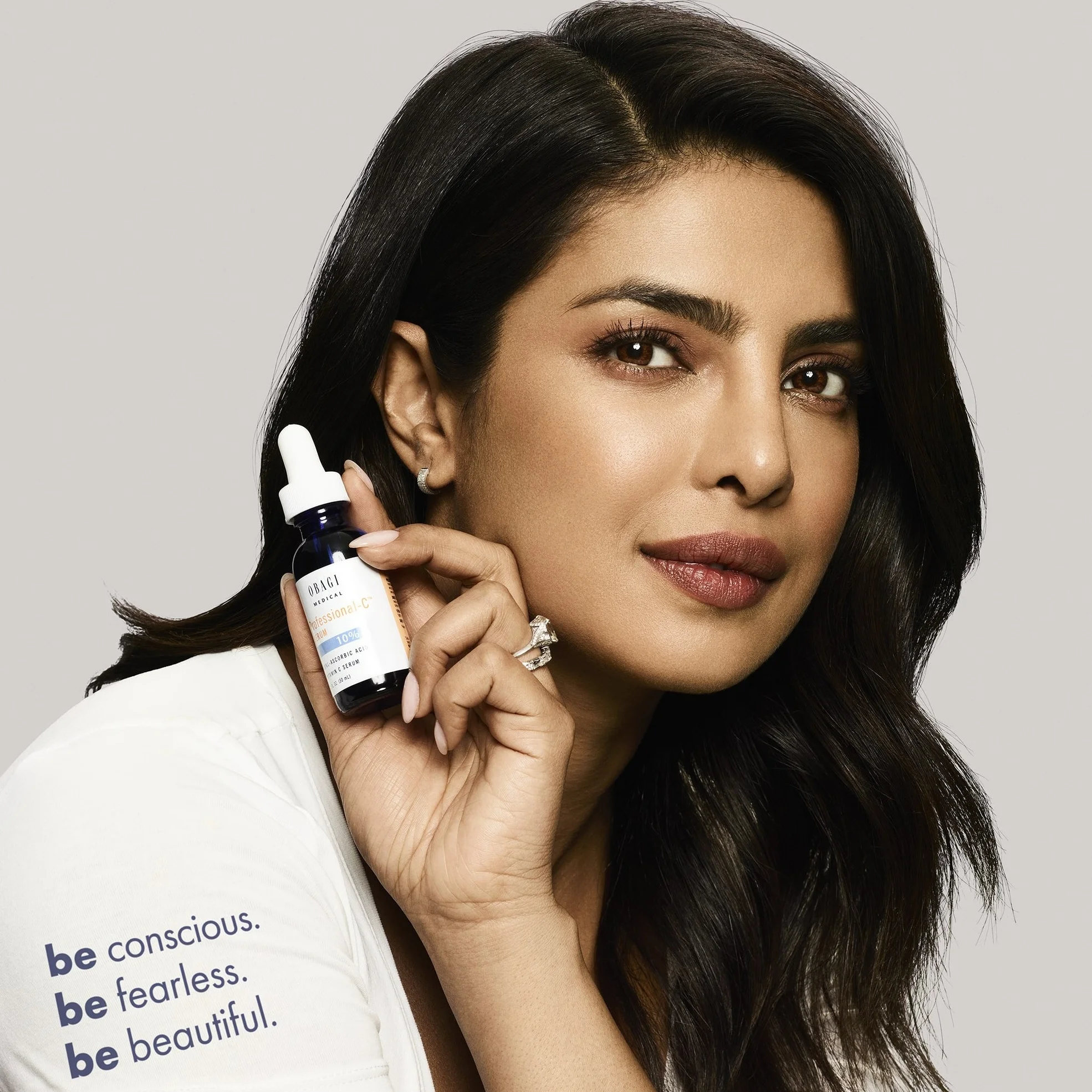Priyanka Chopra Jonas and Obagi Spark Awareness on Skincare Inclusivity and Beyond
As diversity becomes the norm within the cosmetic industry, have we ignored the importance of it within the skincare industry? That is what Obagi brings to light with its new initiative, ‘Skinclusion’. With its ambassador, actress Priyanka Chopra Jonas at the helm, they have teamed up to elevate the global dialogue about diversity and how true inclusivity starts with the ability to first recognize our own unconscious biases. As Chopra Jonas shares in the campaign launch video, “It’s up to all of us to be conscious, to be fearless and to be beautiful.”
Obagi’s Skinclusion Initiative not only spotlights our own unconscious biases but sets out to prove it by encouraging users to take the Project Implicit Skin Tone online test which was created by Harvard researchers in 1988. They have also encouraged people to use the #Skinclusion and share stories of why diversity and inclusion are important to them. For every social action taken using the hashtag, Obagi will donate $1 to support the International Cultural Diversity Organization (ICDO) and Project Implicit, with a total donation of $150,000.
This marks another example of a brand attaching themselves to social causes as younger audiences are gravitating more towards brands who align with a purpose. So why is Obagi all-in when it comes to diversity?
Obagi, which has been recommended and utilized by physicians for over 30 years, has been committed to diversity and inclusion in all aspects of its business – from its corporate to product development. They are led by a female president, Jamie Castle and have an 82% female employee base. But what truly separates Obagi from other skincare brands is that they are the first medical skincare brand to design their clinical research protocols to cover all six skin types across the Fitzpatrick skin spectrum. Developed in 1975 by Harvard dermatologist Thomas B. Fitzpatrick, MD, the Fitzpatrick scale categorizes skin into six different types or tones based on its response to the sun, or ultraviolet light, ranging from fair to rich.
As we know different skin tones have different needs and concerns, and are sensitive to different ingredients, however most if not almost all skincare brands formulate with just skin type in mind: normal, combination, acne-prone, and oily, disregarding skin tone in general. This is what helped sparked Chopra Jonas’ interest in Obagi. In her conversation with Elle, Chopra Jonas was first drawn to Obagi when she was experiencing "crazy breakouts" after moving to Los Angeles. After getting her skin analyzed and trying recommendations from Jamie Castle (Obagi's President), and seeing her skin transform before her eyes, she was hooked. When discussing the importance of Obagi products being tested on all six Fitzpatrick skin types, as opposed to just one particular skin type, Chopra Jonas says to Paper Magazine, “ That makes you feel included.” "It really should make other beauty brands sit up and see that what Obagi has done is revolutionary. If they have been doing it for 30 years, why is everyone else so far behind?"
Priyanka Chopra Jonas biggest hope people take away from this campaign is that skin care can be extremely personal, and that skincare and inclusion are not "aspirational. “It’s easy to remember a time where people couldn't find a compact, powder, or a foundation to match their skin tone. When thinking about how far we've come now, we've gone further, but there are so many parts of the world where you still don't have products, especially skincare, that are made to suit our particular individualities.” As we have all learned and experienced, one size does not fit all and it’s time that all aspects of the beauty industry from cosmetics to skincare to medical and cosmetic dermatology become truly inclusive and diverse.






